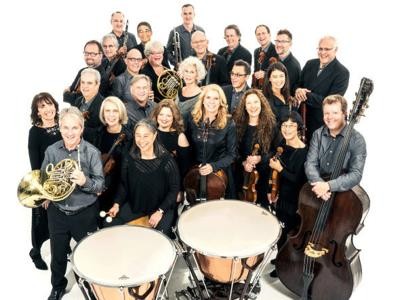I had heard a recording by the Orpheus Chamber Ensemble, seen a documentary about them, and heard about a classic Harvard Business School case study that focused on their leadership style. But, I heard them live last week and I was not prepared for what I heard.
week and I was not prepared for what I heard.
They played Mendelssohn’s 4th Symphony (the Italian). It is a piece that I don’t mind having on while I am doing something else. I have always thought that it was an OK piece, but not in the “drop what you’re doing and listen” category.
I was wrong. Their performance of the symphony commanded my attention. They seemed to play with an “I dare you to try to think about something else while we perform” spirit. In short, they were wonderful.
What makes them so amazing is that they rehearse and perform without a conductor. That’s hard enough with a trio or quartet, but when you get some forty musicians playing a piece that changes tempo, mood, and dynamic level often, it goes well beyond anything I have ever experienced. I perform occasionally in a free jazz ensemble of 20 to 30 musicians. We improvise what we want, but what makes it work (when it does work) is that we play under the guidance of Karl Berger, a masterful conductor. He knows how to bring out something that is building musically and signal others to lay out for a bit. Yes, we have to listen to each other, but we need to always be attuned to what the conductor is signaling.
Orpheus does all of this without a leader and while playing masterpieces of the Western canon.
And How Does This Apply to Organizations? You Ask
For those of us who are interested in influence, decision making, and change in organizations a few things stand out. First, the rehearsal for a piece like the Mendelssohn Symphony begins with a small group from various sections of the full ensemble. That small group comes up with an overall concept for performing the piece. Next, they take this concept to the full ensemble to try it out. During the rehearsal process, anyone is free to make suggestions. And during that live performance, you could see people looking to each other, not just for cues when to come in, but to be alert for subtle shifts in interpretation from each other.
That approach could result in a boring mixed bag of sound. But in the hands of Orpheus, they play music that is still alive and vibrant even during performances. Their music is alive.
I am sure that you or I could come up with a list of big tips for people leading change. Let’s not do that today. For me, it is enough to remember fondly how their approach invites participation and change.
I am almost finished with the 45-minute free webinar on ways to keep energy and forward momentum alive during organizational changes. With any luck, it will be ready to post by June 17. I’ll send out a note to people who subscribe to my newsletter. Sign up here.

 Rick has advised leaders from many countries on ways to apply this new tool successfully.
Rick has advised leaders from many countries on ways to apply this new tool successfully.





